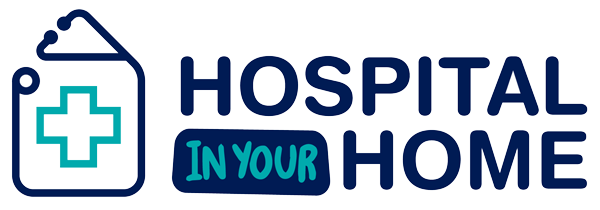The Role of Neighborhood Health Advocates

In the heart of our communities, a silent revolution brews, gradually reshaping the contours of public health through the diligent efforts of neighborhood health advocates.
At the vanguard of this transformation is NovellaCare, a beacon of innovation in community health engagement, whose advocates are writing new narratives in the annals of healthcare by empowering individuals to take the reins of their well-being.
This article delves into the multifaceted role of these advocates, unveiling the layers of their impact and the essence of their mission.
Understanding the Role of Neighborhood Health Advocates
Neighborhood health advocates are not just facilitators of healthcare access; they are the architects of healthier communities.
They operate on the front lines of healthcare, embedding themselves within communities to spark a paradigm shift towards proactive health management.
NovellaCare’s initiative in this realm is not merely a program but a crusade against the inequalities plaguing our healthcare system, seeking to democratize health access one neighborhood at a time.
These advocates serve as liaisons, educators, and confidants, armed with the knowledge and resources to navigate the complex labyrinth of healthcare services.
Their daily endeavors range from conducting home visits and organizing community health workshops to developing personalized health plans that cater to the unique needs of each individual.
The Impact of Neighborhood Health Advocates on Community Health
Stories of triumph over adversity punctuate the narrative of neighborhood health advocates.
Through case studies, we discover instances where advocates have reversed the tide of chronic diseases, such as diabetes and hypertension, by fostering environments that encourage healthy lifestyles.
Their efforts have led to measurable outcomes, including reduced hospital readmission rates and increased rates of preventive screenings within communities.
The efficacy of NovellaCare’s advocates is further illuminated by testimonials from those whose lives have been touched.
A particular story that stands out is that of a single parent who, with the guidance of an advocate, navigated the challenges of accessing pediatric care for her child with special needs.
This anecdote underscores the personalized approach advocates take, ensuring that healthcare is not a privilege but a right accessible to all.
Empowering Individuals to Take Control of Their Health
At the core of the neighborhood health advocate’s role is the empowerment of individuals. Through a blend of education and personalized attention, advocates equip community members with the knowledge and tools necessary for managing their health.
This empowerment transcends the mere dissemination of health information, fostering a sense of agency that motivates individuals to adopt healthier lifestyles.
Creating personalized health plans is a testament to the advocates’ commitment to tailored care.
These plans, developed through a collaborative process between the advocate and the individual, address the multifaceted nature of health, incorporating elements such as nutrition, exercise, and mental well-being.
Bridging the Gap: How Advocates Connect Individuals with Healthcare Resources
One of the most critical functions of neighborhood health advocates is bridging the gap between individuals and healthcare resources.
NovellaCare’s advocates are adept at navigating the maze of healthcare services, connecting community members with the providers and programs that best meet their needs.
This role is particularly crucial in addressing the barriers to healthcare access, which can be financial, cultural, or logistical in nature.
The advocates’ work in overcoming these barriers is not just about facilitating appointments; it’s about building trust within communities, ensuring that healthcare is not seen as distant or impersonal but as a supportive and accessible service.
The Role of Technology in Enhancing the Effectiveness of Health Advocacy
In the digital age, technology plays a pivotal role in amplifying the efforts of neighborhood health advocates. NovellaCare has harnessed a suite of digital tools to enhance the reach and impact of its advocacy efforts.
From health monitoring apps that enable advocates to track the progress of individuals remotely, to telehealth services that bridge geographical divides, technology has been a game-changer in making healthcare more accessible.
Furthermore, the use of social media platforms for health education has allowed advocates to disseminate vital health information widely, breaking down the walls of health literacy that often divide communities.
Training and Support for Neighborhood Health Advocates
The backbone of NovellaCare’s advocacy program is its comprehensive training and support system for advocates.
Prospective advocates undergo rigorous training that covers a broad spectrum of topics, from public health principles to effective communication strategies.
This training ensures that advocates are well-equipped to meet the diverse needs of the communities they serve.
In addition to initial training, NovellaCare provides ongoing support and professional development opportunities for its advocates.
This commitment to continuous learning ensures that advocates remain at the forefront of community health, ready to adapt to new challenges and innovations in the field.
The Future of Neighborhood Health Advocacy
As we look to the future, the role of neighborhood health advocates is set to become increasingly pivotal in the landscape of community health.
Emerging trends, such as the integration of mental health services and the focus on social determinants of health, highlight the evolving nature of health advocacy.
NovellaCare is at the forefront of these developments, continually seeking ways to expand and enhance its programs.
The potential for neighborhood health advocacy to transform healthcare is immense. By fostering a culture of proactive health management and breaking down the barriers to healthcare access, advocates are not just changing individual lives; they are reshaping the very fabric of community health.
Conclusion
The path of neighborhood health advocates is marked by hope, resilience, and unwavering commitment. Through the pioneering efforts of Hospital in Your Home Australia, we witness the significant impact these advocates have on the communities they support.
As storytellers of health, they craft narratives of empowerment, bridging the gap between individuals and the broader healthcare ecosystem.
In a world shadowed by healthcare disparities, the endeavors of neighborhood health advocates shine as a beacon of hope.
Their mission echoes as a call to action, reminding us that health is a shared treasure, upheld by the collective dedication of those who advocate for accessible care for everyone.
At this crucial juncture, we invite you to join us in this transformative movement. If you or someone you know is facing the challenges of healthcare accessibility, reach out to Hospital in Your Home US.
Explore how we can assist in your journey with our innovative care solutions, and together, let’s lay the groundwork for a healthier future.
FAQs
What is a Neighborhood Health Advocate?
A Neighborhood Health Advocate is a community-based professional who helps residents navigate healthcare systems, access medical services, and promote local health initiatives.
How do Neighborhood Health Advocates support community health?
They provide personalized assistance by organizing health screenings, educational workshops, and connecting individuals with medical and social services that improve overall community wellness.
Can anyone become a Neighborhood Health Advocate?
Generally, those interested in becoming Neighborhood Health Advocates need some background in health services, social work, or community outreach, along with training specific to the role.
What are the main responsibilities of a Neighborhood Health Advocate?
Their responsibilities include educating the community on health topics, assisting in accessing healthcare services, and advocating for patients’ needs within the healthcare system.
How does one contact a Neighborhood Health Advocate?
Neighborhood Health Advocates can often be contacted through local health departments, community centers, or social services organizations dedicated to public health.
